20+ Years Experience
Specialist Private Drug Rehab

Are you or a loved one struggling with cannabis addiction? With the increasing acceptance and legalisation of cannabis worldwide, it’s crucial to remember that addiction can still occur.
In this blog post, we’ll explore the symptoms of cannabis addiction rehab in 2023, providing valuable information on understanding how cannabis addiction develops, recognising its signs, managing uncomfortable cannabis dependency and cannabis withdrawal symptoms well, and choosing the right treatment option for lasting recovery.
Cannabis addiction is a dependence on the drug derived from extracts of the Cannabis Sativa plant, containing the key chemical THC.
While many people use cannabis recreationally without developing an addiction, others find themselves unable to quit despite experiencing negative consequences.
The line between recreational use and addiction lies in the individual’s inability to abstain from excessive cannabis use, even when it adversely affects their work, family, and personal life.
Cannabis addiction, also known as marijuana addiction or cannabis abuse, occurs when the brain’s reward system is activated by the increased production of dopamine, resulting in feelings of pleasure and reward.
As the addiction progresses, individuals may experience a range of physical and mental health issues, including respiratory problems, sleep disturbances, and emotional dependence on illicit drug, which can be considered a form of serious substance misuse or substance abuse itself.
The science behind cannabis addiction lies in the way it affects the brain. When someone consumes cannabis, the chemical THC interacts with specific receptors in the brain, resulting in a release of dopamine, which in turn produces feelings of pleasure and reward.
Over time, this increased dopamine production can lead to cannabis addiction, as the individual’s brain begins to crave the pleasurable sensations associated with cannabis use.
Cannabis addiction can manifest in both psychological and physical dependence. Psychological dependence refers to the emotional need or desire to use cannabis, while physical dependence involves developing a tolerance to the drug and experiencing withdrawal symptoms when use is discontinued.
Both cannabis abuse and types of illegal drugs of dependence contribute to the overall health risks of addiction, making it increasingly difficult for individuals to quit without professional help.
Appreciating the complexity of addiction requires a clear distinction between psychological and physical dependence on cannabis.
Psychological dependence stems from the emotional need or desire to use cannabis, as the drug provides a sense of pleasure, relaxation, and escape from stress or negative emotions.
This emotional reliance can make it difficult for individuals to quit cannabis, as they may feel compelled to use cannabis to cope with difficult situations or emotions.
In contrast, physical dependence involves developing a tolerance to cannabis, requiring larger amounts of the drug to achieve the same effects.
When cannabis use is discontinued, individuals with physical dependence consuming cannabis may experience withdrawal symptoms, such as:
These withdrawal symptoms can make it challenging for individuals to quit smoking cannabis, as they may be tempted to use the drug to alleviate their discomfort.
If you or a loved one might be grappling with cannabis addiction, recognising the common signs and symptoms is a key first step. These may include:
By identifying these signs, you can take the necessary steps towards seeking professional help and overcoming the symptoms of cannabis addiction.
In addition to the general symptoms of marijuana abuse or drug abuse mentioned above, there are specific behavioural and physical signs that may indicate cannabis misuse and addiction. These symptoms of cannabis or substance misuse and addiction include:
One of the most apparent indicators of cannabis addiction, a form of drug addiction, is a change in behaviour.
As individuals become increasingly dependent on cannabis, they may neglect their responsibilities at work or school, finding it difficult to focus or complete tasks on time.
This lack of motivation and engagement may also extend to their personal life, as they may lose interest in hobbies or activities they once enjoyed.
Social withdrawal is another common behavioural sign of cannabis addiction. Individuals may isolate themselves from friends and family, preferring to spend their time alone or with others who share their addiction.
This social isolation can further exacerbate the symptoms of cannabis addiction, as individuals may turn to cannabis for comfort and escape from feelings of loneliness or anxiety.
Cannabis addiction can also manifest in various physical symptoms, making it essential to monitor any changes in your or a loved one’s health.
Some of the most common physical symptoms include alterations in mood disorders, in appetite, sleep disruptions, and respiratory difficulties.
For example, individuals may experience an increase or decrease in hunger, potentially leading to weight gain or loss.
Sleep disturbances are another prevalent physical symptom of cannabis addiction. Individuals may struggle to fall asleep, stay asleep, or experience frequent waking throughout the night.
Additionally, respiratory issues such as coughing, wheezing, and shortness of breath may arise due to frequent cannabis use, particularly to smoke cannabis, or smoke marijuana if the individual smokes the drug.
The process of quitting cannabis can be challenging due to the probable experience of withdrawal symptoms.
Withdrawal symptoms generally commence within 24 hours of the last joint and reach their peak around the third day. These symptoms may include:
The duration of withdrawal symptoms associated with cannabis addiction may vary depending on the intensity of the addiction and can last up to two weeks.
It’s essential to be prepared for these symptoms and have a support system in place to help manage them, whether through professional addiction and treatment programmes or personal coping strategies.
While managing cannabis withdrawal symptoms can be uncomfortable, there are multiple strategies available to handle these challenges.
First, it’s crucial to seek professional help from addiction support services, such as counselling or therapy, if the withdrawal symptoms become too overwhelming.
Additionally, practising self-care techniques, such as getting enough sleep, engaging in regular exercise, and maintaining a healthy diet, can help alleviate some of the discomfort associated with withdrawal.
Developing a consistent sleep routine can be especially beneficial during cannabis withdrawal, as sleep disturbances are a common symptom.
Establishing a relaxing bedtime routine, such as taking a warm bath, reading, or listening to calming music, can help signal to your body that it’s time for sleep and make falling asleep easier.
In certain situations, individuals might encounter persistent impairments following withdrawal from drugs or alcohol, known as Post-Acute Withdrawal Syndrome (PAWS).
PAWS is characterised by prolonged withdrawal symptoms that can persist for months after a person discontinues substance use and is thought to be induced by chemical imbalances in the brain.
PAWS can manifest through physical symptoms such as fatigue, insomnia, and headaches, as well as mental health condition such as emotional symptoms such as depression, anxiety, and irritability.
Treatment for PAWS typically involves a combination of:
If cannabis addiction is affecting you or a loved one, exploring the various available treatment options to find one that best suits your needs is vital.
Inpatient and outpatient rehab programs are two common types of treatment for cannabis addiction, each offering unique benefits and challenges.
Inpatient rehab programs provide a residential environment where individuals receive 24/7 medical support, a structured environment, and intensive therapy to help them overcome their addictions.
Outpatient rehab programs, on the other hand, allow individuals to attend therapy sessions and receive support while continuing to live at home and attend to their daily activities.
Both drug addiction treatment options can be effective in helping individuals overcome cannabis addiction, but the right choice will depend on factors such as the severity of the addiction, personal preferences, and financial considerations.
Inpatient rehab programs offer a residential treatment option for individuals struggling with cannabis addiction.
These three residential rehab programs provide a secure, confidential, and pleasant residential environment for stays lasting between 30 and 90 days. Inpatient residential rehab programs offer several benefits, including:
Inpatient rehab programs typically consist of a combination of therapies, such as Cognitive Behavioral Therapy (CBT), group therapy, and support groups, to help individuals regain control of their lives and overcome their addiction.
By providing a structured environment and comprehensive care, inpatient cannabis detox and rehab programs can be highly effective in helping individuals achieve lasting recovery from cannabis addiction.
Outpatient rehab programs offer an alternative treatment option for individuals battling cannabis addiction. Unlike inpatient programs, outpatient rehab allows individuals to continue living at home and attending to their daily responsibilities while receiving treatment.
This flexibility can be particularly beneficial for those with work, school, or family commitments that make it difficult to participate in a residential program.
However, outpatient rehab programs may not provide the same level of structure and support as inpatient programs, potentially making it more challenging for individuals to maintain sobriety and avoid relapse.
It’s essential to carefully consider the advantages and disadvantages of both inpatient and outpatient rehab programs when deciding on the best treatment plan and option for your unique needs.
Cannabis addiction rehab, also known as cannabis rehab, employs a range of therapies to cater to the unique needs and challenges of each individual.
Cognitive Behavioral Therapy (CBT) and group therapy are two common types of therapies utilised in cannabis addiction treatment.
These therapies can help individuals identify and change negative thought patterns and behaviours related to their addiction, develop healthy coping skills, and build a support network for lasting recovery.
In addition to CBT and group therapy, other therapeutic approaches may be employed in cannabis addiction rehab, such as support groups, counselling, and complementary therapies like mindfulness meditation, equine therapy, drumming therapy, and aqua therapy.
These therapies can offer additional support and guidance to expert addiction treatment, helping individuals address the underlying issues contributing to their addiction and develop the skills needed to maintain long-term sobriety.
Cognitive Behavioural Therapy (CBT) is a widely used therapy in cannabis addiction treatment. CBT helps individuals identify and change negative thought patterns and behaviours related to their addiction, such as the belief that they need cannabis to cope with stress or negative emotions.
By addressing these unhelpful thoughts and replacing them with more positive, adaptive ones, individuals can develop healthier coping skills and strategies for managing their cannabis addiction.
CBT typically consists of a series of sessions with a therapist, during which the individual is taught how to identify and challenge negative thought patterns and behaviours.
The therapist will also help the individual develop coping skills to address their issues, such as stress management techniques, communication skills, and problem-solving strategies. Over time, these skills can help individuals maintain sobriety and prevent relapse.
Group therapy is another essential component of cannabis addiction and rehab treatment centres, offering numerous benefits for recovery and to have people overcome cannabis addiction and dependency among cannabis rehab centre clients. In a group therapy setting, individuals can share their experiences, learn from one another, and develop a sense of camaraderie and support.
By participating in group therapy, individuals can gain valuable insights into their addiction, learn new coping strategies, and build healthier relationships with others.
Group therapy sessions are typically led by a therapist who facilitates discussion and encourages participants to share their thoughts and feelings.
These sessions may focus on a variety of topics, such as managing cravings, developing healthy coping skills, and addressing the underlying issues contributing to addiction.
By engaging in group therapy, individuals can receive the support and guidance they need to overcome their addiction and maintain long-term recovery.
Following the completion of a cannabis addiction rehab program, it’s vital to persistently practice the strategies and skills learned during treatment to sustain long-term recovery.
Aftercare and relapse prevention play a vital role in helping individuals stay sober and avoid returning to their addictive behaviours. Aftercare may involve:
Relapse prevention (RP) is another essential aspect of aftercare, involving the identification of high-risk situations in which an individual may be tempted to use cannabis again and the creation of strategies to implement when these situations arise.
By participating in aftercare and RP programs, individuals can continue to build upon the foundation established during treatment and develop the skills needed to maintain a lifetime of sobriety.
In aftercare, support groups and counselling serve as a significant pillar, offering continual support and guidance for individuals recovering from cannabis addiction.
Support groups, such as Marijuana Anonymous, offer a safe and non-judgmental environment where individuals can:
These support groups provide ongoing support and a sense of community for individuals in recovery.
In addition to support groups, counselling can help individuals address any underlying issues that may have contributed to their addiction, such as mental health disorders, relationship problems, or unresolved trauma.
By working with a trained addiction specialist, individuals can gain valuable insights into their addictive behaviours and develop healthier coping strategies for managing stress, emotions, and other triggers that may lead to relapse.
For long-term stress management and relapse prevention, the development of healthy coping skills is crucial.
Some examples of healthy coping skills include physical activity, meditation, and participating in leisure activities.
Exercise, for example, can help alleviate stress, improve mood, and boost energy levels, making it an effective tool for managing cravings and maintaining sobriety.
Meditation has also been shown to be effective in reducing stress, enhancing concentration, and increasing self-awareness, which can be particularly beneficial for individuals in recovery from cannabis addiction, especially those who were either smoking cannabis or taking cannabis alone as a coping mechanism.
By engaging in hobbies and other enjoyable activities, individuals can find alternative ways to cope with stress and negative emotions, ultimately reducing the risk of relapse and promoting long-term recovery.
Counselling and therapy can be used to treat cannabis use disorder, as well as medications and behavioural therapies for those with underlying mental health disorders.
Further research is needed to identify additional effective treatment options.
The most effective psychological treatment for cannabis use disorder (CUD) is a combination of cognitive-behavioral therapy, motivational enhancement therapy, and contingency management.
Studies have consistently shown that this three-pronged approach to taking cannabis, produces the greatest reduction in cannabis use and can help individuals achieve long-term abstinence from the substance.
The recovery rate for cannabis use disorder is quite high, with a median length of recovery being 5 years and a reported history of treatment in 45% of individuals.
Remission rates from cannabis consumption-related problems range from 67-90%.
Cannabis use can lead to dependence and addiction in certain individuals, with recent data showing that up to 30% of users may have a cannabis use disorder.
Additionally, approximately 9-20% of those who use cannabis daily may become dependent on consuming cannabis.
Recreational female cannabis plant use is the occasional consumption of marijuana for pleasure, while addiction to smoked cannabis plants refers to an inability to stop using cannabis plant despite negative consequences.
In conclusion, overcoming cannabis addiction is a challenging but achievable goal for those who seek help and commit to their recovery journey.
By understanding the complexities of addiction, recognising the signs, managing withdrawal symptoms, and choosing the right treatment option, individuals can regain control of their lives and achieve lasting sobriety.
With the support of professional treatment, aftercare programs, and the development of healthy coping skills, a life free from the symptoms of cannabis addiction is possible.
There are a range of other services that we can provide. Have a look at the list below for more information:

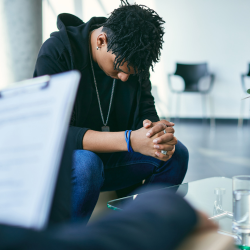
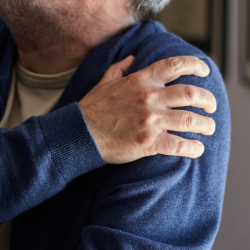
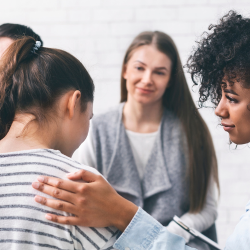

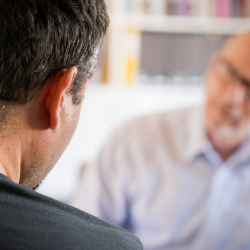
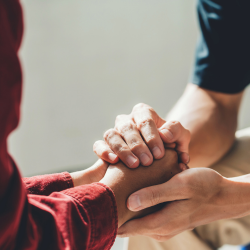

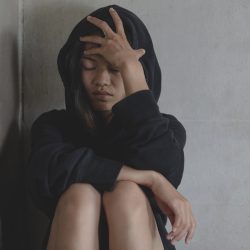

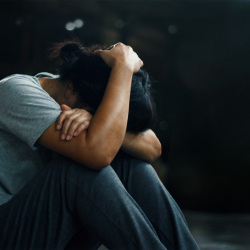







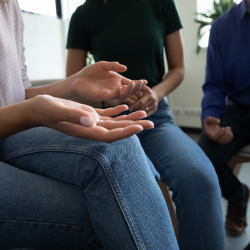
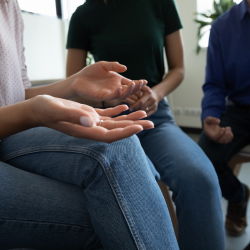


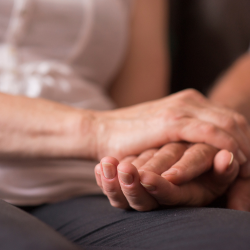
We Aim To Reply To All Enquiries With-in 24-Hours